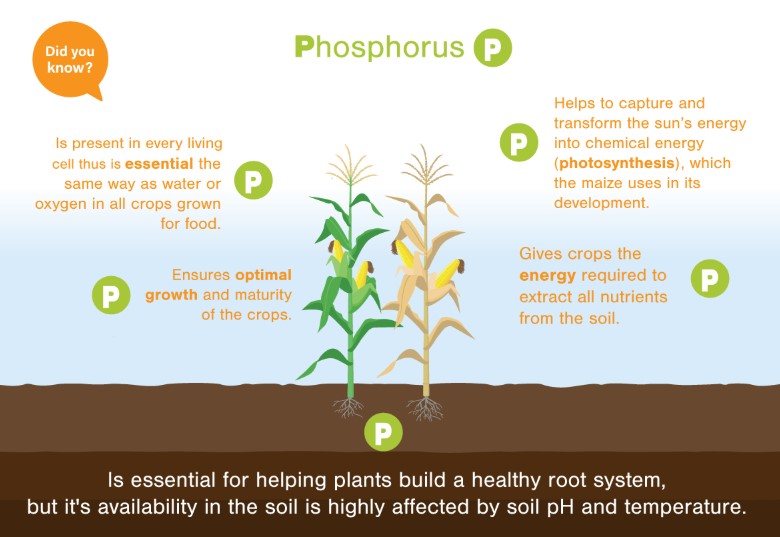Among the three micronutrients essential for plant growth, phosphorus plays a very important role, the other two being Nitrogen and Potassium. Sulphur WDG as well plays a very important role in the plant growth but the role of phosphorus is vital because without phosphorus, it is impossible for photosynthesis to occur in plants and no photosynthesis means no life. As a fundamental component of Adenosine Triphosphate or ATP, phosphorus plays an important part in the complex energy changes that are required for life . It is also a key component of DNA and RNA, and is required for the production of proteins and other substances.
That is only the start. Phosphorus is needed by plants from seedling through maturity, and it has a significant influence on crop quality and output. Adequate quantity of phosphorus helps plants to withstand extreme cold and weather changes, saving their lives.
Advantages and functions of Phosphorus
The advantages of phosphorus is so much that it is recommended by sulphur suppliers in India as they are continuously in touch with the farmers and know exactly what the farmers are using for their crops these days. The advantages and functions of phosphorus is explained in detail below
- In order to get nutrients from the soil, plants need to have developed roots and the developed roots are stimulated by phosphorus. Well developed roots not only help plants to absorb nutrients but also provide concrete support to the plants. Developed and strong roots are able to penetrate deep inside the soil to absorb nutrients properly
- Another major function of phosphorus is to store and transport nutrients produced in the leaves to different parts of the plants thus helping the plant to grow healthier and stronger. It also helps plants in photosynthesis
- Phosphorus is responsible for the maturity of crops at the right time. This means that fruit yielding crops when mature at the right time, yield fruits at the right time. When crops lack the amount of phosphorus in them, they take time to mature and when they yield fruits, they are either very few in quantity or not of good quality.
- Nitrogen in the soil is fixed with the help of legumes through the roots and since phosphorus helps in strengthening the roots and helps in its development, the nitrogen in the soil gets fixed naturally
- Without phosphorus, the components essential for the synthesis and growth of genes cannot function properly. Only when phosphorus is present the genes are passed along from generation to generation.
- Plants which absorb phosphorus in adequate quantities are immune to many diseases and grow healthier as compared to ones that do have enough phosphorus. This happens because parts of the plants containing phosphorus are stronger, well developed and grow quickly.
Phosphorus Deficiency
It is now very much clear how important phosphorus is for the plants and deficiency could be fatal for plants. Phosphorous insufficiency isn’t often visible, but it can be detected if plants don’t develop to their full potential or mature too slowly. Because it is difficult to reverse the consequences of a phosphorus deficit once symptoms of stunted growth occur, plants require phosphorus from the beginning of their development.
Phosphorus Fertilizer is used to compensate for phosphorus deficiency in the soil. Instead of providing phosphorus to soil, plants grown under hydroponics may utilise phosphorus dissolved in water. The impact of phosphorus is the same regardless of how it is applied. It is very much clear that Phosphorus is vital for the plants which is why farmers do their best to feed their crops with adequate amount of phosphorus from time to time

